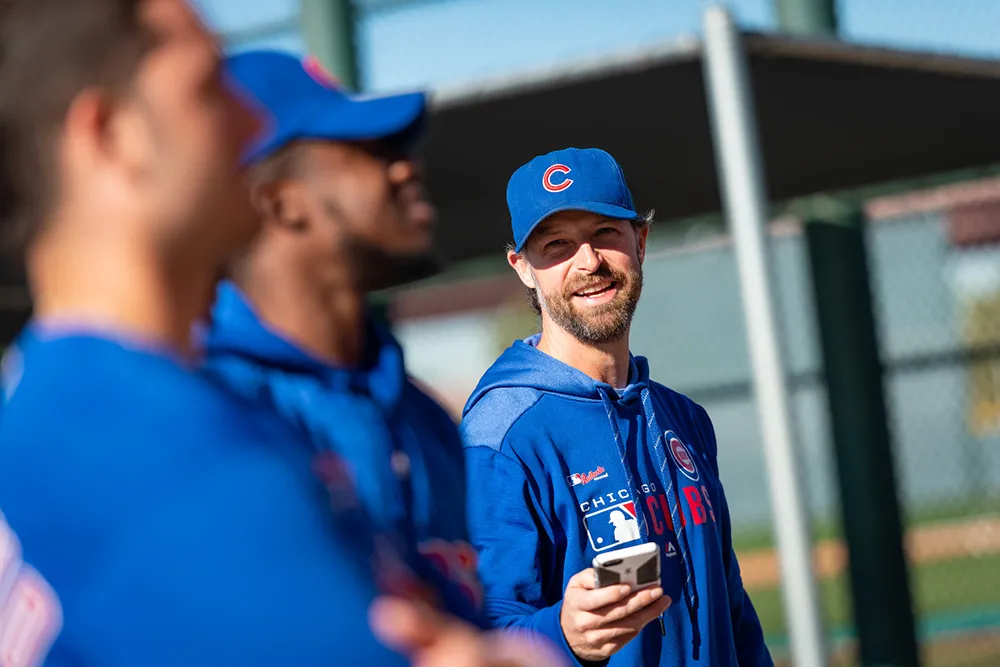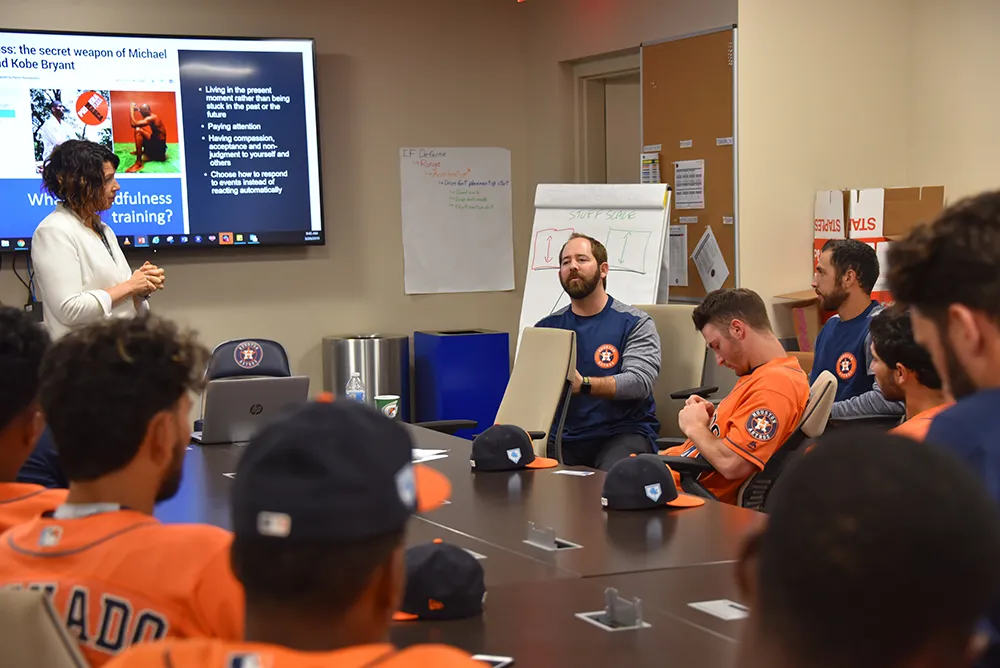Editor’s note: This is the first installment in a 6-part series that will also appear in the spring issue of ICView.
Los Angeles Dodgers’ legendary play-by-play announcer Vin Scully once said of outfielders that they “have a lot of time to think and to destroy themselves.”
In a three-hour start-stop game like baseball, the ball might only be in play for 10 minutes. But during the downtime, players can see their mistakes replayed both in their minds and on 10,000-square-foot screens. Each error is assigned and tallied on scoreboards around the stadium and even online. Every mistake is seen and talked about around the world.
Athletes are human. Amid the chaos, they can’t help but scramble for reason, trying to impose order where seemingly none exists, searching for a re-entry point for the mind to start taking back control. Thinking isn’t a bad thing depending on how you do it, why you do it, what you are thinking about—and whether you can change it. No longer content with having meticulous control over every other part of their bodies, athletes now work on their brains as well.
Finding that psychological edge on the field is now a field in itself, one led in part by dozens of Ithaca College alumni offering mental skills training not just in sports but also in business, the military and other fields. However, it’s Major League Baseball where they’ve had the biggest impact. In fact, of the last three World Series winners, each has had in its organization an alumnus from Ithaca College’s sport psychology master’s program. Dan Abroms, MS ’08, of the Boston Red Sox; Jesse Michel, MS ’09, of the Houston Astros; and Josh Lifrak, MS ’05, of the Chicago Cubs. Overall, four of the 30 organizations employ an IC alumnus in their mental skills department. Like Abroms, the Tampa Bay Rays’ James Schwabach, MS ’11, works primarily with younger minor league players (read his story "Keeping Focused Amid Chaos").


